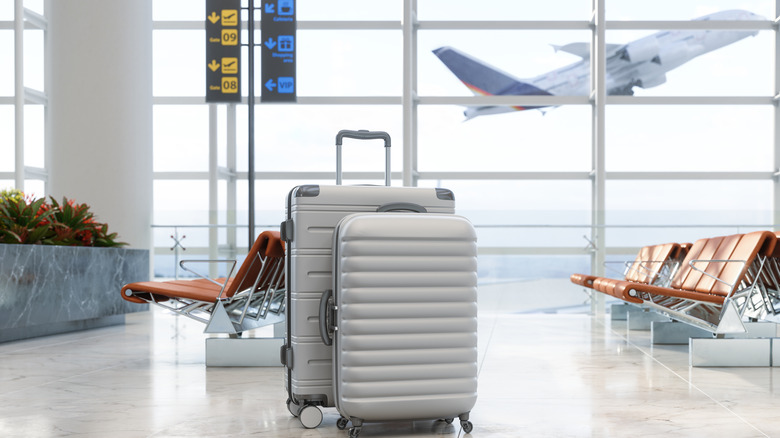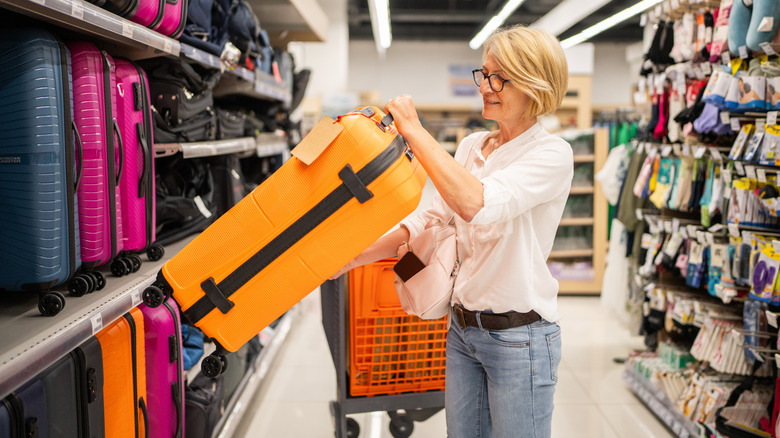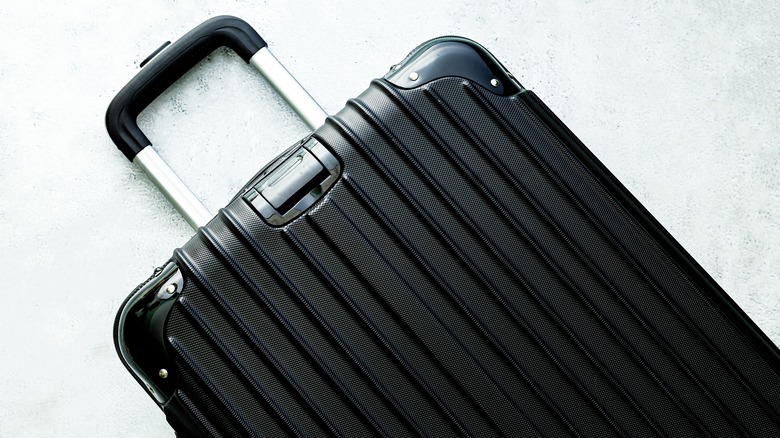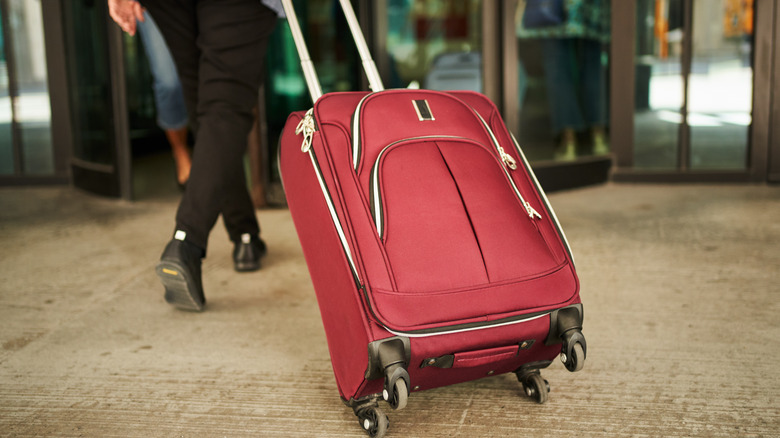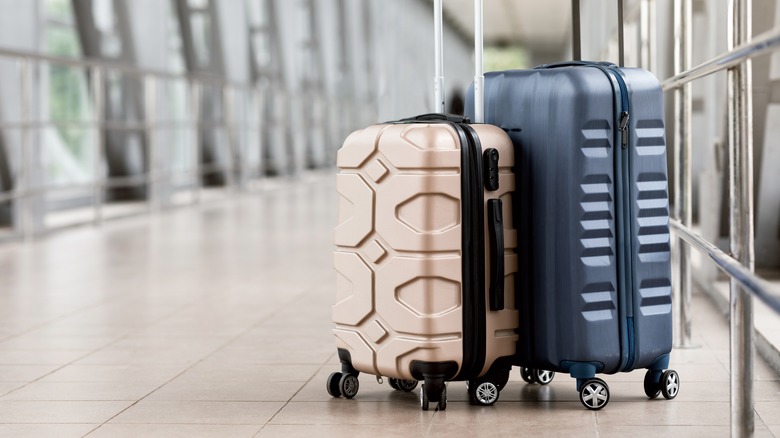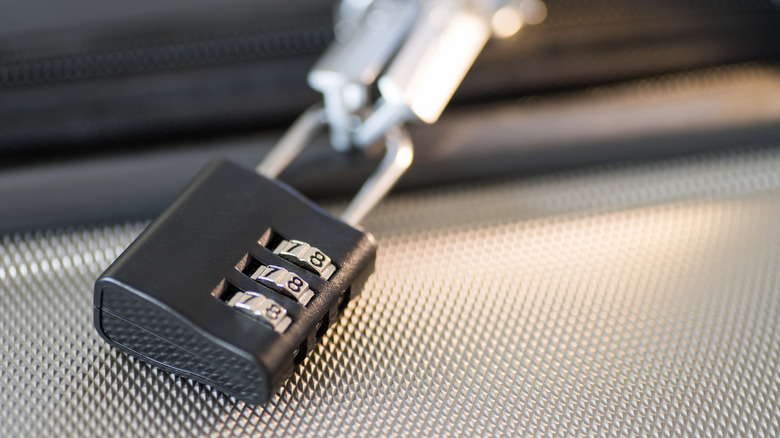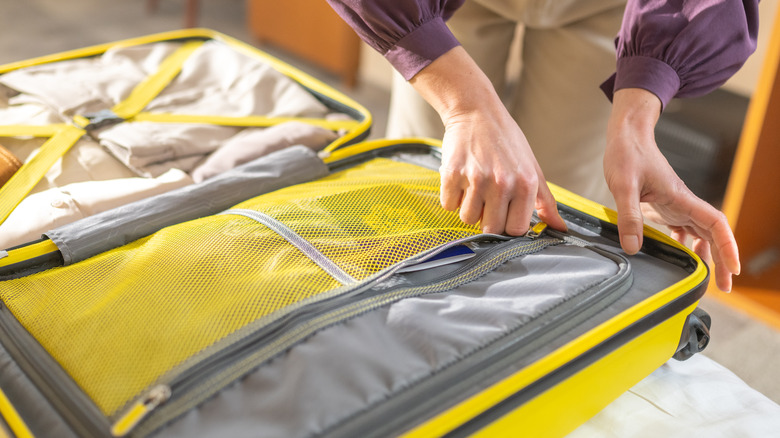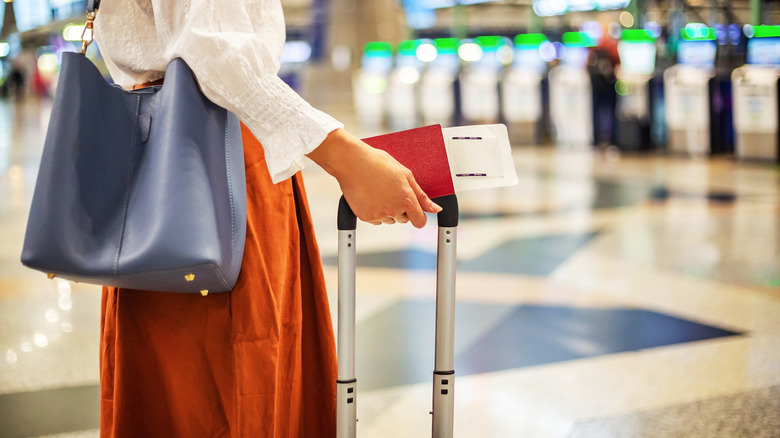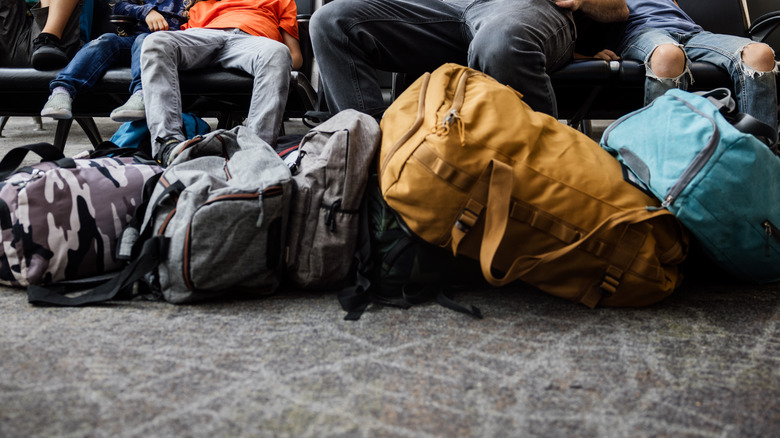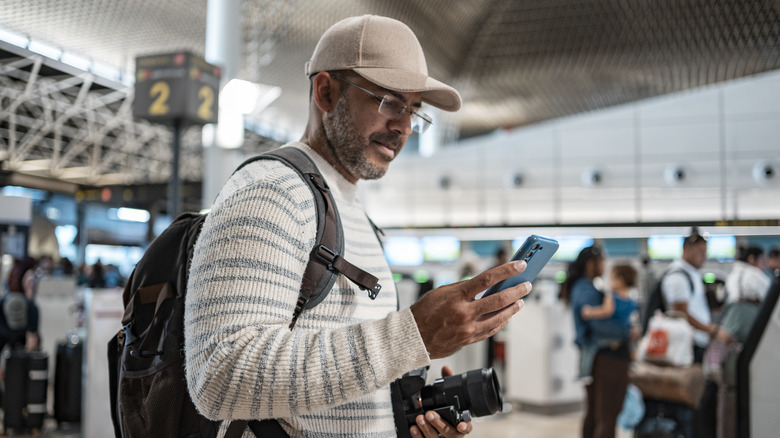What To Look For When Buying Quality Luggage
Selecting quality luggage is key for a more seamless and stress-free travel journey, and if you travel frequently, luggage should be a top-tier investment. Depending on whether you're traveling internationally or domestically, your luggage options may include a carry-on, checked luggage, and a personal bag. While the TSA gives you tips and each individual airline has its own luggage guidance, you'll ultimately decide on the quality of luggage that complies with their standards.
There is a lot to consider when choosing the best quality luggage for your budget and destination, but prioritizing durability and practicality is a wise approach. Based on personal experience while traveling and living abroad, you'll want to look for sturdy materials, reliable zippers, and ample storage compartments while avoiding over-complicated designs and excessive weight. When zippers and handles fail, or a suitcase's sharp edges damage your belongings during transit, it can seriously impact your trip.
To help you in your decision-making, we've compiled the most important considerations when it comes to choosing a high-quality bag. While broken zippers helped inform our choices, luggage has also evolved drastically in the last decade, offering travelers more options now than ever before.
Finding the right luggage for your travel style
Opt for luggage that suits your travel style, whether it's lightweight and compact for easy mobility or robust and spacious for extended trips. The luggage you choose really depends on what your travel plans are. Short trips benefit from compact carry-ons or versatile luggage, ideal for navigating busy airports or crowded streets. Longer journeys, especially those involving business attire, delicate garments, or longer periods of travel time typically call for a checked luggage or garment bag as well as a carry-on.
As a general rule, you can usually add a specialty bag to the sum of your luggage for free, such as purses, diaper bags, and laptop bags. That said, you'll have to check the specifics with the airline you're traveling with. While traveling with only a carry-on is convenient, as it cuts out the time spent waiting at the luggage carousel and the risk of the airline losing your luggage, checked bags offer the benefit of size and fewer content restrictions. Overall, your decision to invest in a quality carry-on or a larger piece of luggage (or both) will depend on your travel style.
Considering luggage material and durability
The choice of your luggage material underpins the luggage's resilience, offering added protection to your belongings from the rigors of travel, such as being tossed onto baggage belts or enduring crowded airport terminals. When selecting luggage, prioritize robust materials such as ballistic nylon, polycarbonate, or ABS plastic. Ballistic nylon, known for its strength, is commonly used in soft-sided luggage, offering excellent resistance to tears and abrasions. Polycarbonate and ABS plastic are what you find in hard-sided luggage, known for their sturdiness and ability to withstand external impacts.
Soft-sided luggage can provide flexibility and expandable compartments for extra packing space, making these bags the perfect option for adaptability and are typically the preferred choice for those who value convenience. In contrast, hard-sided luggage delivers enhanced protection for fragile or valuable items. However, whether you choose hardside or softside luggage, you'll need to ensure your bag is constructed from durable materials to prolong the life of your luggage and protect your belongings.
Spinner wheels or traditional wheels
Spinner wheels, such as double-spinner or single-spinner wheels, provide effortless 360-degree maneuverability, allowing you to glide your luggage in any direction with minimal effort. Although these wheels make navigating through busy airports and crowded streets a breeze, offering flexibility and versatility, if they are low quality, they can easily break off or get stuck. Since these types of bags are designed to be pulled, a malfunctioning wheel is no good.
In contrast, traditional wheels, commonly found on two-wheel suitcases, are known for their simplicity and stability. These wheels, typically large and sturdy, excel on rugged terrains, uneven surfaces, and cobblestone streets. While they provide a smooth and reliable roll and are less prone to swiveling unintentionally, they may not maneuver past people and around objects as easily as spinner-wheel designs.
When selecting the best type of wheels for your luggage, you'll again need to consider the nature of your travels. If you prefer easy maneuverability, then spinner wheels, especially double-spinner wheels, are a great choice for urban environments and hassle-free navigation. However, if your journeys often take you to places with challenging terrains or you prefer a more stable and secure feel while pulling your luggage, traditional wheels are the way to go.
The pros and cons of smart luggage
Smart luggage comes equipped with various tech-savvy features, including built-in charging ports, GPS tracking, digital locks, and even scales to weigh your baggage, but is smart luggage worth it? On one hand, these features can add convenience to your travels by keeping your devices powered, helping you locate your luggage, and offering enhanced security. If you appreciate the convenience of staying connected and well-organized on the go, smart luggage may be a worthy investment.
However, smart luggage does have some drawbacks. Luggage with non-removable lithium batteries is not allowed as carry-ons due to airline regulations. Additionally, the inclusion of tech features often results in a higher price point for smart bags. When considering smart luggage, it's crucial to select bags designed for carry-on use, especially if you want to make the most of their innovative functions. These bags are not only compliant with airline regulations but also offer genuinely useful features for your travels. There are smart bags, such as Heys luggage, that replace lithium batteries with AAA batteries, making them approved to carry on. Overall, if your smart bag isn't a carry-on, then its most useful features — such as charging docks — won't be too useful.
Combining security and accessibility
While locking your luggage can enhance security during your travels, it's essential to consider the advantages and disadvantages of locks. On the positive side, locking your luggage or securing your luggage with straps provides a layer of protection against theft and tampering. This can offer peace of mind when your bag is out of sight, such as during check-in or while in transit. However, locked luggage can pose challenges during security checks, as airport security personnel may need to inspect your bag. Additionally, forgetting the lock combination or losing your key can be more than an inconvenience.
Combination locks are popular for their convenience, but you'll need a memorable combination, while key locks will require you to keep track of the key. Cable locks offer flexibility in securing multiple zippers or attaching your bag to fixed objects, which may be a good choice when traveling to a destination where theft is a concern. While it's tempting to purchase a lock based on your preference, there's one other factor you need to keep in mind when purchasing your lock — the TSA. Locks that are TSA-approved can be opened by airport security without damaging your luggage. Some high-quality luggage comes with built-in locks, but again, you'll need to ensure that these built-in locks are TSA-approved to avoid any issues at the airport.
Suitcase solutions for kids
Consider your child's age and their ability to manage the suitcase. It's one thing to be trying to go through airport security with your own bags in tow, but if you're traveling with children who also have carry-ons, you may find yourself managing theirs as well. Younger children may benefit from smaller, lighter suitcases, while older children can handle larger options. Regardless, you'll still want to focus on material and durability, types of wheels, the size of your children's luggage, and their design.
The design of your child's luggage might be more important than you think, especially if your child is nervous about traveling. Having a fun design they've picked out may help them to travel more comfortably. That said, you'll still want to invest in actual, factual luggage versus a toy. When you're only allotted so many bags, you need to make sure they all function. If not, you'll find yourself purchasing another bag at the airport — not the most cost-effective place to purchase luggage.
There is also children's luggage that allows the child to sit and push themselves around with their feet, almost like a balance bike. This can help make airport travel quicker and more enjoyable as well. Finally, in case you ultimately need to carry a tuckered traveler's bag, you may want to consider buying travel straps or luggage that can double as a backpack.
Packing solutions and luggage capacity
Luggage capacity, typically measured in liters or cubic inches, will largely determine how much you can pack, but creative compartments and luggage designs also play a role. While well-designed luggage can ensure your belongings stay organized and secure during your journey, high-quality luggage is often also intuitively designed for accessibility and to streamline security. The luggage usually offers multiple compartments, expandable features, and clever organization options to facilitate efficient packing. When choosing luggage, simply consider how a design may or may not allow you to pack your carry-on to get through security fast.
That said, you shouldn't compromise durability for creative compartment concepts. In truth, to make the most of your luggage space, you'll probably want to invest in packing cubes or compression bags anyway. These will dictate much of your organization. However, luggage with a built-in laptop compartment or water bottle holder is always a plus.
Prioritize handles and zippers
The handles on your luggage play a pivotal role in maneuverability. They are your primary means of lifting, carrying, and rolling your luggage. Telescopic handles, commonly found on suitcases, enhance ease of use by allowing you to adjust the handle to your preferred height. This feature minimizes strain and ensures a comfortable grip, especially when navigating through airports or streets. Luggage handles should be sturdy, well-attached, and ergonomically designed to facilitate smooth and effortless transportation. If you're investing in expensive luggage, you'll want to look into their warranty or if they can easily replace your handle.
When it comes to luggage zippers, you'll commonly find options like coil zippers and tooth zippers. Coil zippers are known for their flexibility and durability, making them a good choice for luggage that might undergo a lot of movement and stress. Tooth zippers, on the other hand, are sturdy and provide a secure closure, ensuring that your luggage remains tightly sealed during your travels. What makes these zippers good options for your luggage is their reliability and ease of use. Trust us, you want zippers that won't jam or break easily.
A high-quality duffel bag
While you envision high-quality luggage, you probably don't consider duffel bags, but these versatile bags offer several advantages — and high-quality duffel bags aren't cheap. They are known for their flexibility and durability, making them an excellent choice for travelers who value adaptability. Although typically made of incredibly durable material, duffel bags lack the rigid structure of suitcases, allowing them to be easily compressed and stored when not in use. This makes them ideal for travelers who may need to pack their luggage away in various places — think safari or adventure cruise. Duffel bags also tend to be lightweight, providing an option for those looking to minimize the overall weight of their luggage.
One of the primary differences between duffel bags and suitcases is the organization of compartments. Duffel bags are generally simpler, often featuring one main compartment with minimal pockets or dividers. This can be advantageous for those who prefer open packing or want to customize their organization with packing cubes. When deciding between a duffel bag or a suitcase, consider your destination, activity, and the sheer durability required for your trip.
Should your luggage have a warranty
While usually not the first consideration, a luggage warranty offers peace of mind and assurance for your investment, especially if you're investing in a nice, durable set of luggage. They signify the manufacturer's confidence in their product's quality and durability. In the event of defects or damage, a warranty can save you from unexpected repair or replacement costs. Equally important is the quality of customer service offered by the manufacturer.
Prompt and responsive customer service can make the warranty process more efficient and less stressful. When considering luggage, taking into account whether the manufacturer offers a warranty or not can help inform your overall decision. Overall, high-quality luggage is expensive, and if you travel often, there's always a chance something breaks. While a warranty won't cover lost or stolen luggage, many reputable brands offer 10-year or even lifetime warranties that will guarantee they'll fix a malfunctioning or broken bag.
Tracking your high-quality luggage
Since you're investing in high-quality luggage, tracking devices, such as Apple AirTags, offer a reliable and efficient way to monitor the whereabouts of your bags. These devices are compact and easily attachable to your bags, allowing you to keep tabs on them in real-time. They provide a valuable layer of security and convenience during your travels. If your luggage goes missing or is mistakenly taken, you can track it using a smartphone app, leading you to its location.
When considering a tracking device, take into account its compatibility and ease of use. Along with Apple Airtags, some of the most common tracking devices include Tiles Mate, Samsung SmartTag+, and Tracki, though there are more options out there. A tracking device won't prevent anything bad from happening to your luggage, but if your luggage does go missing, you'll be better informed of your options for retrieving your high-quality bag.
